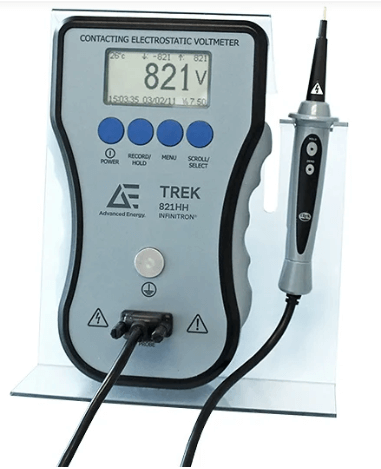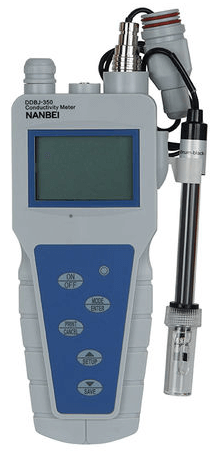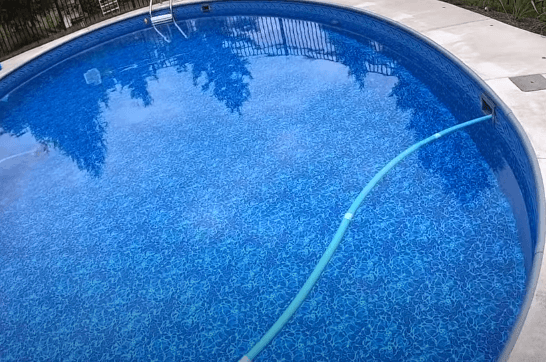If you have a pool, you’ll want to ensure the water is safe and clean for swimming. One way to do this is to test the water for electricity. Here’s how to test pool water for electricity:
1. Fill a bucket with pool water.
2. Place one end of a metal rod or screwdriver into the bucket.
3. Touch the other end of the metal rod or screwdriver to a metal object not part of the pool, such as a doorknob.
4. If you feel shocked, there is electricity in the water, and swimming is not safe.
5. If you are not shocked, the water is safe to swim in.
You should test the water for electricity before each swim to ensure it is safe.
There are many ways to test pool water for electricity.
The most common way is to use a pool test kit. These kits usually come with a test strip and a chart showing the chlorine level in the water.
Another common way to test for electricity is to use a voltmeter.
This method is more accurate than the test strip method but is also more expensive.
Finally, you can also test for electricity by using a conductivity meter.
This method is the most accurate, but it is also the most expensive.
Using a pool test kit

Keeping the water clean and clear is crucial if you have a pool. But did you know that you also need to test the water for electricity?
While most people think of chlorine and pH levels when testing pool water, electricity is also an essential factor. After all, you don’t want to get zapped when you jump in.
Here’s how to test pool water for electricity using a pool test kit:
First, make sure that all of the electrical equipment in your pool is turned off. This includes the pump, lights, and any other devices.
Next, fill your pool test kit with pool water. Be sure to follow the instructions that come with your kit.
Once the pool water is in the kit, touch the metal electrode to the water. You should see a reading on the meter.
If the reading is above 0, then there is electricity in the water, and it is not safe to swim. If the reading is 0 or below, then the water is safe, and you can swim.
It’s important to test the water for electricity regularly, especially if you have young children or pets who swim in the pool.
By following these simple instructions, you can keep your family safe and enjoy your pool all summer long!
Using a voltmeter to testify electricity in the water

It’s always a good idea to test your pool water for electricity before you get in. Here’s how to do it using a voltmeter:
1. Fill a clean bucket with pool water.
2. Submerge the voltmeter in the bucket, making sure that the metal probes are in contact with the water.
3. Check the reading on the voltmeter. If it’s above
two volts, there may be enough electricity in the water to give you a shock.
4. To be absolutely sure, repeat the test with a second voltmeter. If you don’t have a voltmeter, you can also test for electricity in pool water using a metal spoon.
Just touch the spoon to the water and see if you feel a tingling sensation. If you do, there’s a chance that the water is electrified, and you should get out immediately.
Of course, the best way to avoid getting a shock from pool water is to make sure that the pool itself is properly grounded.
This means that there should be a metal rod driven into the ground near the pool, and the pool’s electrical system should be connected to this rod.
If you’re not sure whether or not your pool is properly grounded, you should have it checked by a qualified electrician.
Conductivity meter

Now, we’ll be discussing how to test pool water for electricity by using a conductivity meter.
This is an important safety measure to take, as pools can be dangerous places if there is any build-up of electricity in the water.
First, you’ll want to make sure that your conductivity meter is properly calibrated.
Next, you’ll need to take a sample of water from your pool. Be sure to take the sample from the deepest part of the pool, as this will give you the most accurate reading.
Once you have your water sample, you’ll want to test it immediately. To do this, simply place the conductivity meter in the water and take a reading.
The reading should be in the range of 0-500 ppm (parts per million). If your reading is outside of this range, it’s possible that there is an electrical issue with your pool. If this is the case, you’ll need to have a professional come and take a look at the pool. In most cases, however, a reading that is outside of the normal range is simply due to a mistake in the calibration of the conductivity meter.
If this is the case, simply recalibrate the meter and take another reading. Testing the pool water for electricity is a simple and easy process that only takes a few minutes. However, it’s an important safety measure that should be done on a regular basis.
By taking the time to test your pool water, you can help ensure that it is safe for you and your family to enjoy.
Can You See Electricity in the pool water?
Have you ever wondered if you can see electricity in the pool water?
Well, the answer is yes. When water molecules are hit with electricity, they emit blue light. This is called “cascade luminescence.” And it’s pretty amazing to see.
To get started, you’ll need a dark room and a pool with a deep end. Turn off the lights and shine a flashlight into the water. You should see a faint blue light coming from the water.
If you want to see a more dramatic display, you can use a Van de Graaff generator. This will create a larger electrical field and produce more intense blue light.
So, next time you’re in the pool, take a look around and see if you can spot the electricity in the water.
How Can You Tell if Electricity is in Water?
If you see sparks or feel a tingling sensation when you touch water, there’s a good chance that electricity is present.
Other signs of electrical activity in water include a hissing sound or the water feeling unusually hot. Of course, the best way to confirm the presence of electricity in water is to use a voltmeter or other type of electrical testing device.
But if you don’t have one of these handy, there are still a few ways to tell if electricity is present. One way to tell if electricity is in water is to look for sparks.
If you see sparks, it’s a good indication that there is an electrical current present. Another way to tell if electricity is in water is to touch it. If you feel a tingling sensation when you touch water, it’s likely that there is an electrical charge present.
Finally, another way to tell if electricity is in water is if the water feels unusually hot. If the water is significantly warmer than the surrounding air, it’s a good indication that there is an electrical current present.
If you see any of these signs, it’s a good idea to stay away from the water and contact an electrician or other qualified professional to assess the situation.
Swimming pool electrocution statistics
A swimming pool is a great place to cool off and have some fun, but it can also be dangerous.
Every year, there are reports of people being electrocuted while swimming in pools. While the number of incidents is relatively low, it’s important to be aware of the risks and take steps to prevent them.
According to the U.S. Consumer Product Safety Commission, there were an average of four deaths per year from swimming pool electrocutions between 2003 and 2012.
The majority of victims were young children. In most cases, the child was swimming alone or unsupervised at the time of the incident. There are a number of ways that electrocutions can occur in swimming pools. The most common is faulty wiring or electrical equipment.
This can happen if the pool is not properly grounded or if the electrical system is not up to code.
Another way is through contact with power lines that are overhead or nearby. This can happen if the pool is located close to power lines or if the lines are not properly insulated.
The best way to prevent electrocutions is to make sure that the pool is properly maintained and that all electrical equipment is up to code.
If you are swimming in a pool that is not properly maintained, be sure to stay away from any electrical equipment. If you see any signs of electrical damage, report it to the pool manager immediately.
How can you get electrocuted in a swimming pool?
You might be wondering how you could possibly get electrocuted in a swimming pool.
After all, water is a good conductor of electricity, so wouldn’t it just ground out any potential electrical hazard?
Unfortunately, it’s not that simple. While water is a good conductor, it’s not a perfect one. If there’s enough voltage present, it can overcome the resistance of the water and cause an electrical current to flow.
This is what can happen if you get electrocuted in a swimming pool. There are a few ways that this can happen. One is if there’s an electrical appliance near the pool that someone has accidentally dropped in. If the appliance is still plugged in, it can create a dangerous situation.
Another way this can happen is if the pool itself is improperly grounded. This can happen if the metal around the pool is not properly bonded to the earth. This can create a situation where there’s a difference in potential between the water and the metal, which can cause an electrical current to flow.
If you do find yourself in a situation where you’re swimming in a pool, and you feel a tingling sensation, it’s important to get out of the water as quickly as possible.
Once you’re out, you should call for help and avoid touching anything that might be electrically charged, such as metal rails or fences. If someone else is in the pool with you, don’t try to pull them out. Instead, have them swim to the side of the pool and get out on their own.
Suppose you must touch someone to help them out of the pool; make sure that you’re not touching anything else that might be electrically charged. Once everyone is out of the pool, call 911 and wait for help to arrive.
Can you get electrocuted in an above-ground pool?
Yes, you can get electrocuted in an above-ground pool. It is not as common as getting electrocuted in an inground pool, but it can happen. There are a few things that need to be in place for this to happen.
First, there needs to be an electrical source that is close to the pool.
Second, the water in the pool needs to be conductive.
And third, someone needs to be in the pool and touch the water when the electricity is flowing.
When all of these factors are present, the risk of electrocution is real. The electrical current can flow through the water and into the person in the pool, causing serious injury or even death.
There have been a few cases of people being electrocuted in above-ground pools, and it is always a tragedy. If you have an above-ground pool, be sure to take precautions to avoid this from happening to you or your family.
Warning signs
We all know that water and electricity don’t mix. But did you know that electricity in water can actually be quite dangerous?
Here are some warning signs that you should be aware of if you think there may be electricity in your water:
1. A tingling sensation when you touch the water.
2. The water is unusually hot or cold.
3. The water is giving off sparks or static electricity.
4. The water is producing a strange noise.
If you notice any of these warning signs, it’s important to take action immediately.
What to do? if anyone is a victim of it.
Assuming that you are referring to someone who has been electrocuted by a pool, the first thing to do is to call 911. Once the victim is out of the pool, if they are not breathing, begin CPR.
If they are breathing but not conscious, try to keep them awake and alert. If the victim is unconscious and not breathing, do not try to move them. Wait for emergency personnel to arrive.
How to prevent pool electrocution?
Most people don’t think about the possibility of electrocution when they’re swimming in their pool. However, it is a very real danger.
Every year, there are reports of people being electrocuted in pools. In some cases, these accidents are fatal.
There are a few things that you can do to prevent pool electrocution. First, make sure that your pool is properly grounded. This will help to dissipate any electrical charges that may build up in the water.
Second, don’t swim in your pool during a thunderstorm. Lightning can strike the water and cause a dangerous electrical current.
Finally, if you notice any electrical equipment near your pool, such as a power cord or a light, make sure that it is not damaged or frayed. If it is, replace it before using it.
If you follow these safety tips, you can help to prevent pool electrocution. However, even if you take all of the necessary precautions, accidents can still happen.
If you or someone you know is electrocuted in a pool, it is important to get medical help immediately. Electrocution can cause serious injuries and even death.
Underwater Pool Lights and Shock Danger
Underwater pool lights are a great way to add a little bit of flair and fun to your pool. They come in various colours and can make your pool stand out.
However, there is a danger associated with these lights that you need to be aware of. If you have ever been shocked by a pool light, you know how painful it can be.
The danger comes from the fact that the lights are usually located underwater, which means that there is a risk of electrocution if you are not careful.
There have been a number of incidents where people have been shocked by underwater pool lights. In some cases, the shock has been fatal. It is important to be aware of the dangers of these lights and to take precautions to avoid being shocked.
One of the best ways to avoid being shocked by an underwater pool light is to make sure that the light is properly grounded. This means that there is a metal rod that is driven into the ground near the light.
This will provide a path for the electricity to travel to the ground instead of through your body. Another way to avoid being shocked by an underwater pool light is to wear rubber gloves when you are handling the light. This will help to insulate your hands from the electrical current.
If you have an underwater pool light that is not properly grounded, you should have an electrician come out and fix the problem. This is the only way to be sure that the light is safe to use.
It is also a good idea to have a qualified electrician inspect your pool lights on a regular basis. This will help to ensure that they are safe and that there are no potential problems. Underwater pool lights can be a great addition to your pool.
However, you need to be aware of the dangers associated with them. Be sure to take the necessary precautions to avoid being shocked.
How to Minimize the Risk of Pool Electrocution
As the weather gets warmer, people all over the country start to break out of their swimming pools. While pools can be a great source of fun and relaxation, it’s important to be aware of the dangers they can pose as well.
One of the most serious dangers is the risk of electrocution. Swimming pools are often located outdoors, which means they’re exposed to the elements. This can lead to corrosion of the metal components, which can create electrical hazards.
In addition, pools often have electrical equipment, such as pumps, filters, and lights, which can also create hazards if they’re not properly maintained.
There are a few things you can do to minimize the risk of electrocution in your pool:
Improve Pool Lighting
Poor lighting can make it difficult to see potential hazards in the pool. Be sure to have adequate lighting around the pool so you can see clearly.
Regular Pool Inspection
It’s important to inspect the pool regularly to look for any potential hazards. Be sure to check the electrical equipment and make sure there is no corrosion.
Hire Professional Electricians
If you’re not comfortable inspecting the electrical equipment yourself, hire a professional to do it for you. They will be able to identify any potential hazards and make sure the equipment is properly maintained.
Do Not Use Electrical Devices in Pools
Electrical devices, such as radios, speakers, and TVs, can pose a serious hazard if they fall into the water. If you must use electrical devices near the pool, be sure to keep them away from the water.
Look Out for Faulty Equipment
Faulty electrical equipment is one of the most common causes of electrocution in pools. Be sure to inspect the equipment regularly and replace any that shows signs of wear or damage.
Be Ready for Possible Accidents
Even if you take all the necessary precautions, accidents can still happen. Be sure to have a first aid kit nearby in case someone is injured. In addition, know how to turn off the power to the pool so you can safely rescue someone who has been electrocuted.
By following these tips, you can help to minimize the risk of electrocution in your pool. Remember, safety is always the most important concern when it comes to swimming pools.
Are Indoor Pools Safer?
Whether you’re a beginner or an experienced swimmer, indoor pools offer a safe and controlled environment for you to enjoy your favourite water-based activity. Here are just a few reasons why indoor pools are safer than their outdoor counterparts:
1. Indoor pools are less likely to be affected by bad weather. If you’re swimming outdoors, you’re at the mercy of the weather. If it’s a hot day, you run the risk of dehydration and heat exhaustion. If it’s cold, you could get hypothermia. And if there’s a thunderstorm, you could be struck by lightning. None of these risks is present when you swim indoors.
2. Indoor pools are usually shallower than outdoor pools. This means that there’s less of a chance that you’ll hit your head on the bottom of the pool and sustain a serious injury. It also means that young children and non-swimmers are less likely to get in over their heads and drown.
3. There are usually more lifeguards on duty at indoor pools. Since indoor pools are usually located at hotels, gyms, and other public facilities, there are usually more lifeguards on duty. This means that someone will always be there to help if you get into trouble while swimming.
4. Indoor pools are typically cleaner than outdoor pools. Since they’re not exposed to the elements, indoor pools are less likely to be contaminated with bacteria and other pollutants. This means that you’re less likely to get sick after swimming in an indoor pool.
5. Indoor pools are usually better lit than outdoor pools. This makes it easier to see any potential hazards, such as loose tiles or sharp objects.
It also makes it easier for lifeguards to spot someone in trouble. Whether you’re a beginner or an experienced swimmer, indoor pools offer a safe and controlled environment for you to enjoy your favourite water-based activity.
Why bonding is used in a swimming pool?
There are many reasons why Bonding is used in swimming pools. The most common reason is to create a safe environment for swimmers.
By bonding the metal components in the pool, it creates a path for any stray electrical current to follow. This ensures that swimmers are not electrocuted if they come into contact with any live electrical wires.
Another reason for Bonding is to reduce the risk of corrosion. When metal components in the pool are not bonded, they are more likely to corrode. This can lead to dangerous chemicals being released into the water, which can be harmful to swimmers.
Bonding also helps to reduce the build-up of static electricity in the pool. This can be a problem if there are metal objects in the pool, as they can attract and hold onto electrical charge. This can be dangerous if someone touches the metal and they are then electrocuted.
Finally, Bonding can help to improve the overall appearance of the pool. Ensuring that all of the metal components are properly bonded, gives the pool a neater and more finished look.
Why is Earthing used in a swimming pool?
There are many benefits to earthing a swimming pool. One of the most important is that it helps to dissipate static electricity that can build up on the surface of the water.
This can be a serious hazard, as it can cause shocks to swimmers.
In addition, earthing helps to reduce the overall electrical potential of the pool, making it safer for everyone. Another reason to earth a pool is to prevent corrosion. Metal objects in contact with water can corrode over time, and this can be a serious problem in pools.
Earthing the pool helps to prevent this by providing a path for electrical current to flow safely away from the metal objects. This can help to extend the life of your pool and keep it looking its best.
Finally, earthing a pool can help to improve the quality of the water. This is because it helps to remove any unwanted ions from the water.
These ions can cause problems with the pH balance of the water and make it more difficult to maintain a healthy pool. Earthing the pool helps to keep the water clean and healthy.
Some important topics we have covered so that you can increase your knowledge about indoor or outdoor pools.
